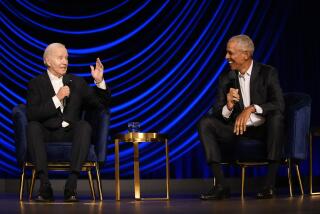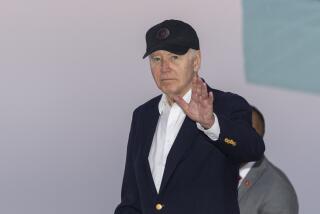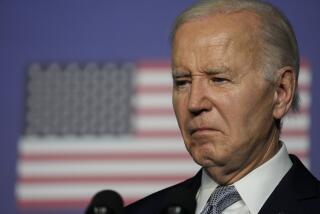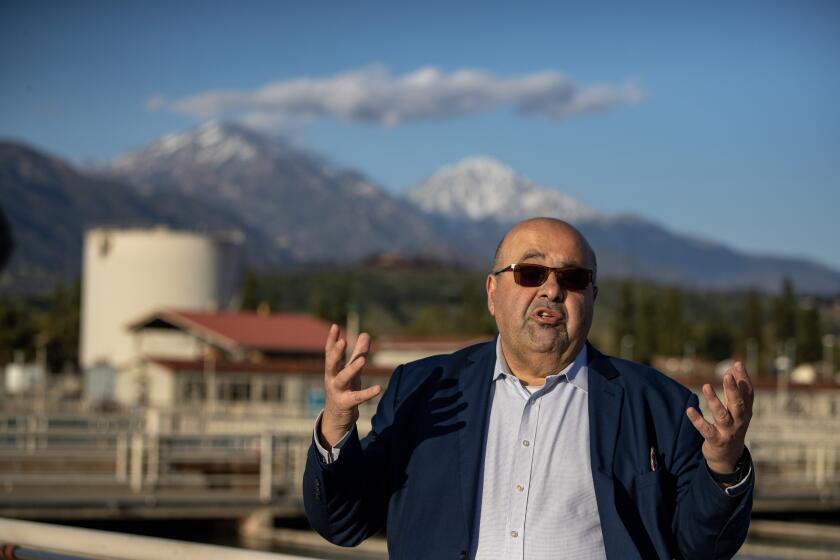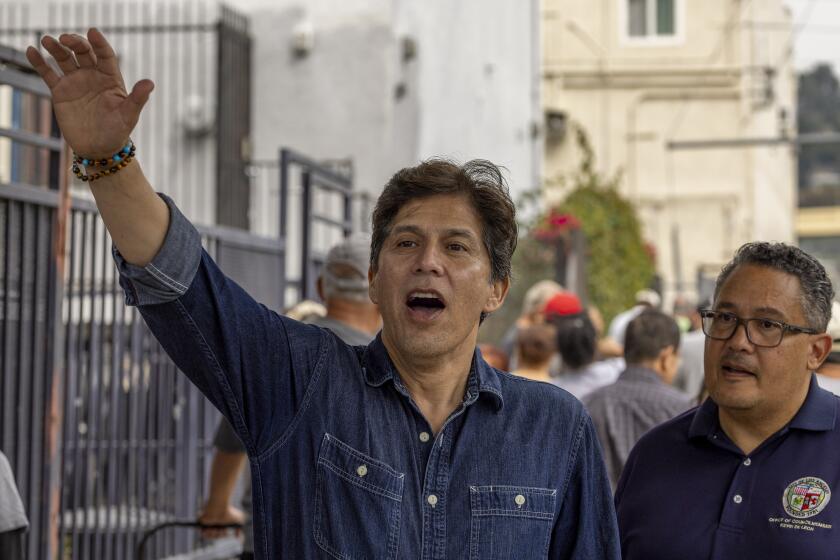Campaign Finance Debate Begins on Shaky Ground
As the Senate on Friday began debating campaign finance reform legislation fueled by scandals involving both political parties, heated rhetoric quickly made clear that prospects of change are far from certain.
Senate Majority Leader Trent Lott (R-Miss.) opened the debate by declaring that the price of passing a reform package must include curbs on a major money source for Democratic causes: labor unions. Lott insisted that the “essential first step” to reform must be a ban on unions using mandatory dues for political contributions without the consent of members.
More than any of the numerous contentious issues surrounding campaign finance reform, the coming GOP attempt to limit union contributions looms as the major barrier to enactment of a bill. Democrats have long called such an amendment “a poison pill” that would cause them to balk at supporting legislation co-sponsored by Sens. John McCain (R-Ariz.) and Russell D. Feingold (D-Wis.).
Lott felt so strongly about the issue that in the written text of his remarks, his comments on union dues appeared in bold type.
Saying that he opposes “the forcible collection and expenditure of union dues for political purposes,” Lott declared: “As far as I’m concerned, righting that wrong is the price of admission to campaign finance reform.”
The McCain-Feingold bill only requires that labor groups notify those employees who are represented but who have not formally joined the union--in most cases, a relatively small number--that they are entitled to a refund of that part of their “agency” fees used for political purposes. Unions already operate under this procedure but can spend the dues of their members as the leadership sees fit.
In his remarks, Lott also struck an unusually partisan and personal note in his remarks, saying that President Clinton has no credibility on the issue because controversial fund-raising practices used by his 1996 campaign are “a case study of the problem, not an exemplar of the solution.”
But McCain said both parties are guilty of campaign fund-raising abuses and irregularities that cry out for systemic reform.
“Now is the moment when we can begin to prove that we are--in word and deed--the people’s representatives, that we are accountable to all the people who pay our salaries and not just to those Americans who finance our campaigns,” McCain said.
Senate Minority Leader Tom Daschle (D-S.D.) called for a “sincere, bipartisan effort to clean up our own house,” adding: “The American people are not dumb. They know the system is broken.”
Clinton, for his part, said in a speech in Houston that he was delighted the debate had begun, but he said that voters need to make themselves heard if reforms are to pass. “There will be a lot of efforts to make it look like we’re going to do something, and nothing will happen unless we all work hard and demand that something happen,” he said.
Advocates of change got a boost minutes before the Senate debate began as Sen. Arlen Specter (R-Pa.) became the 49th member to express support for the McCain-Feingold bill.
A few hours later, a bipartisan group of House members, which has backed a variety of approaches to reform, united behind the measure.
But pro-reform House members, including leaders of a bipartisan freshman task force on the issue, conceded that the chamber is unlikely to act unless the Senate first passes a bill.
No votes in the Senate are expected until next month, Lott said. He plans to interrupt the debate to enable the Senate to finish action on the 13 appropriation bills that fund government operations, he said.
Lott also intends to offer, probably early next week, an amendment or a substitute to the McCain-Feingold bill. He did not say precisely what he will propose, although he expressed support for lifting all contribution limits while imposing more stringent disclosure requirements--an approach that House Speaker Newt Gingrich (R-Ga.) and many other Republicans back.
The McCain-Feingold bill’s centerpiece is a ban on “soft money”--largely unregulated donations to political parties that often are channeled to support individual campaigns.
Such funds are at the center of investigations into irregularities during last year’s campaigns. And already this year, a record $34 million in soft money has been collected by political parties in the first six months--a 250% increase over the same post-presidential election period in 1993.
A second key provision would establish a “bright line” test 60 days before an election to differentiate between political ads and “issue” ads. Because current distinctions are fuzzy, the airwaves become saturated with negative ads that attack candidates under the guise of addressing independent issues, which can be financed with soft money under current rules.
The bill subjects political ads to federal restrictions and reporting requirements.
The plan also halves, to $2,500, the maximum contribution that a political action committee may give. It also requires greater disclosure.
Finally, the bill encourages candidates to limit the amount of personal money they spend on their own campaigns. If a candidate voluntarily limits personal spending to $50,000, then the national parties would be allowed to use “coordinated expenditures” to help such office-seekers.
More to Read
Get the L.A. Times Politics newsletter
Deeply reported insights into legislation, politics and policy from Sacramento, Washington and beyond. In your inbox three times per week.
You may occasionally receive promotional content from the Los Angeles Times.
